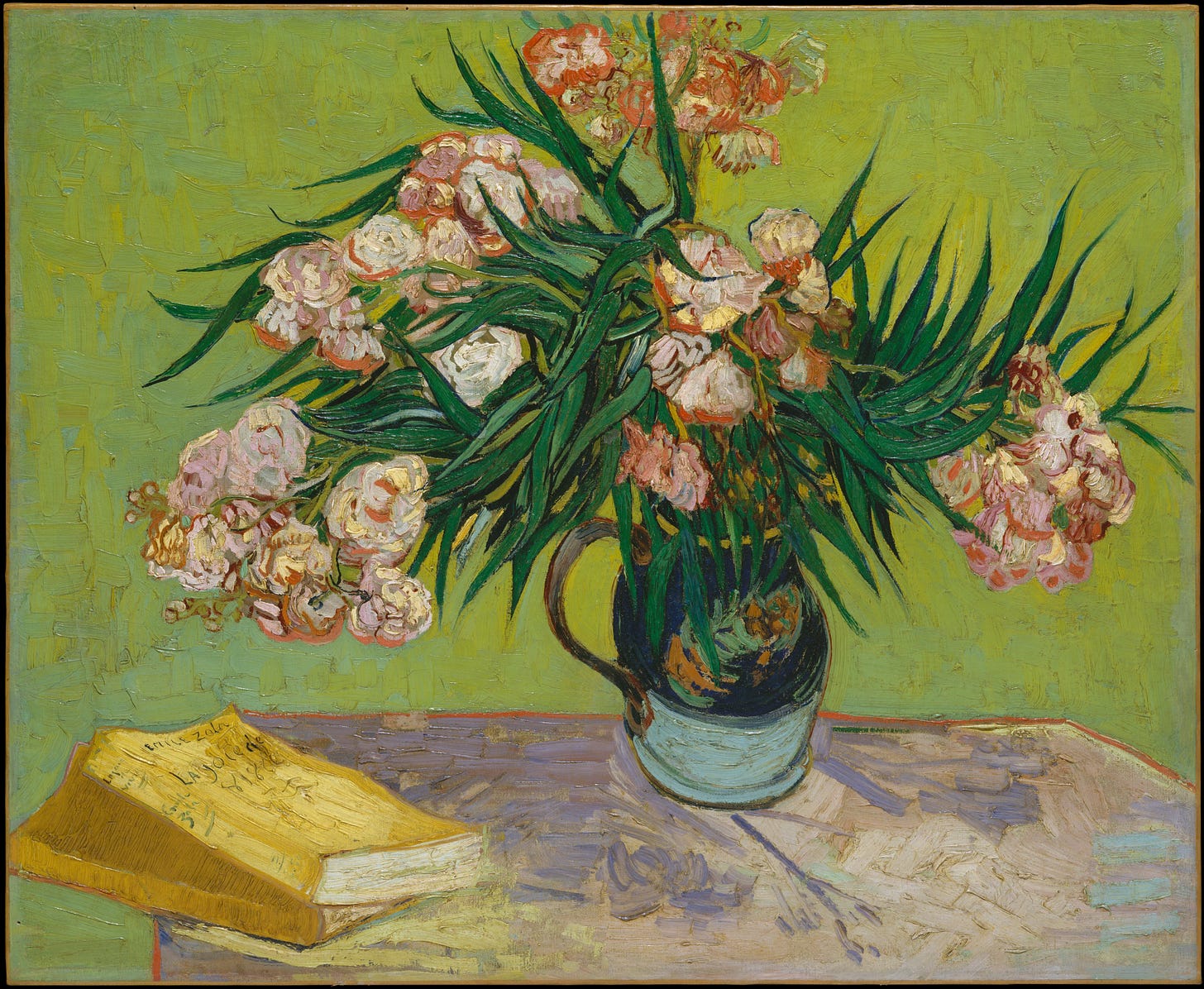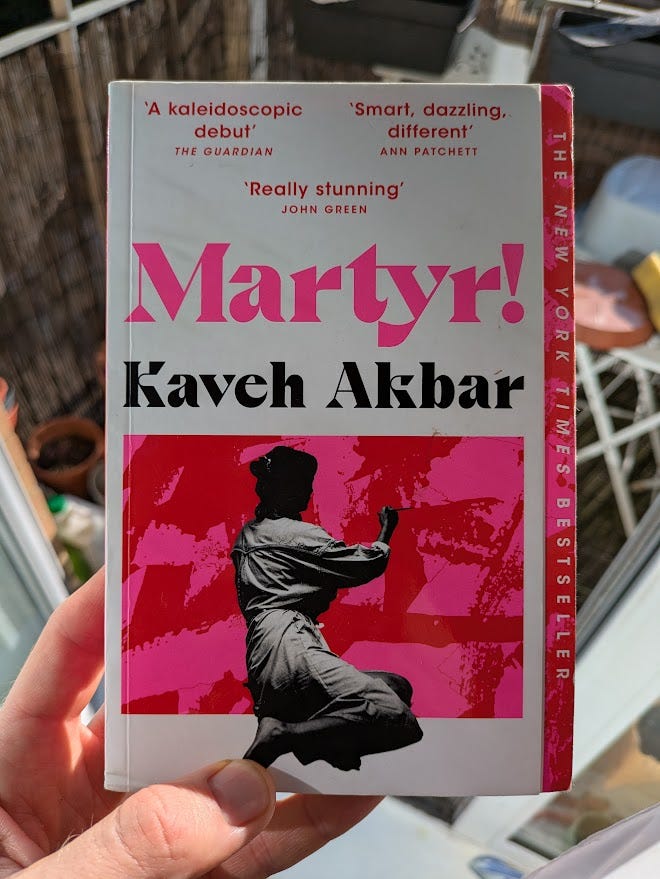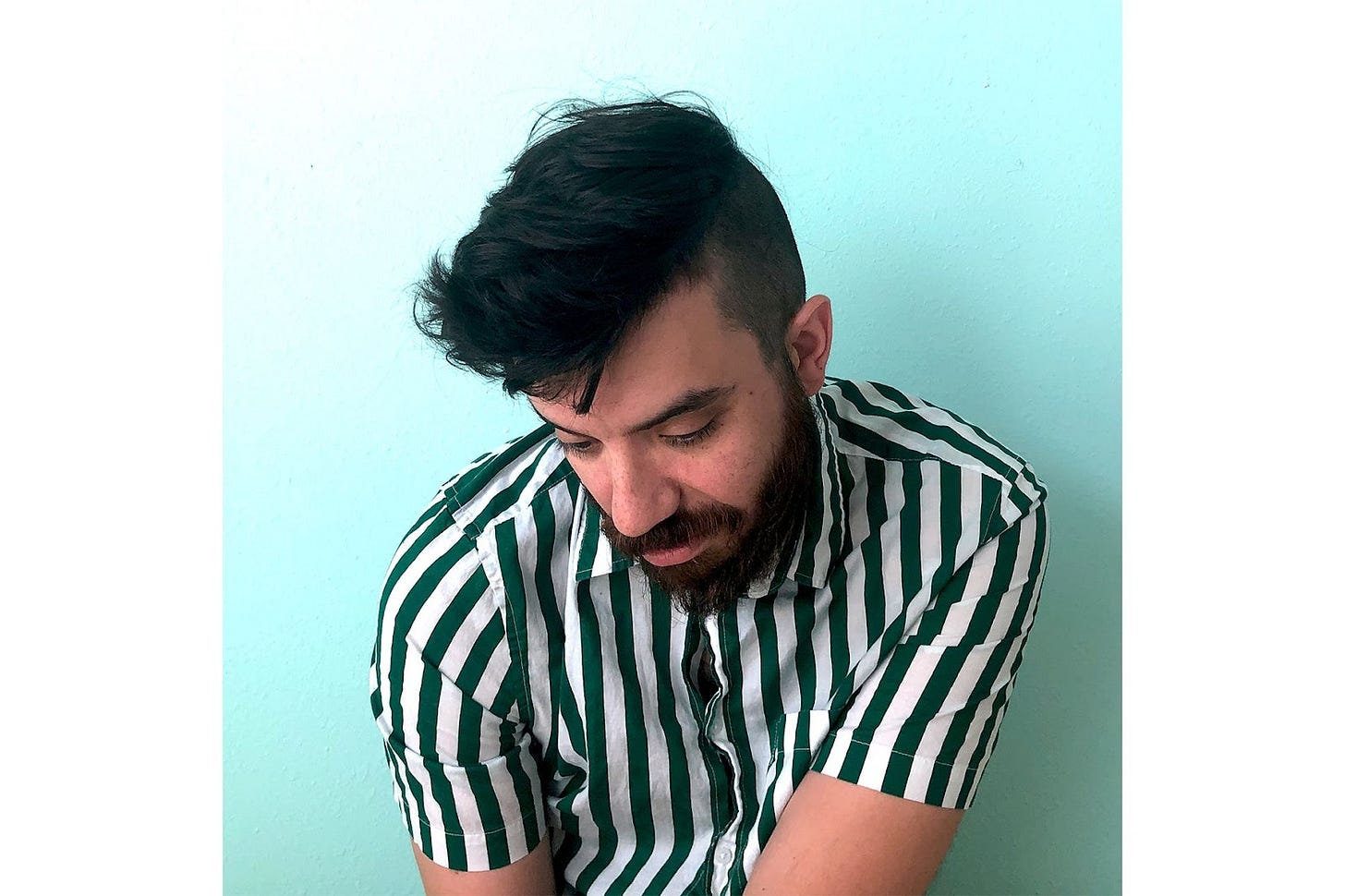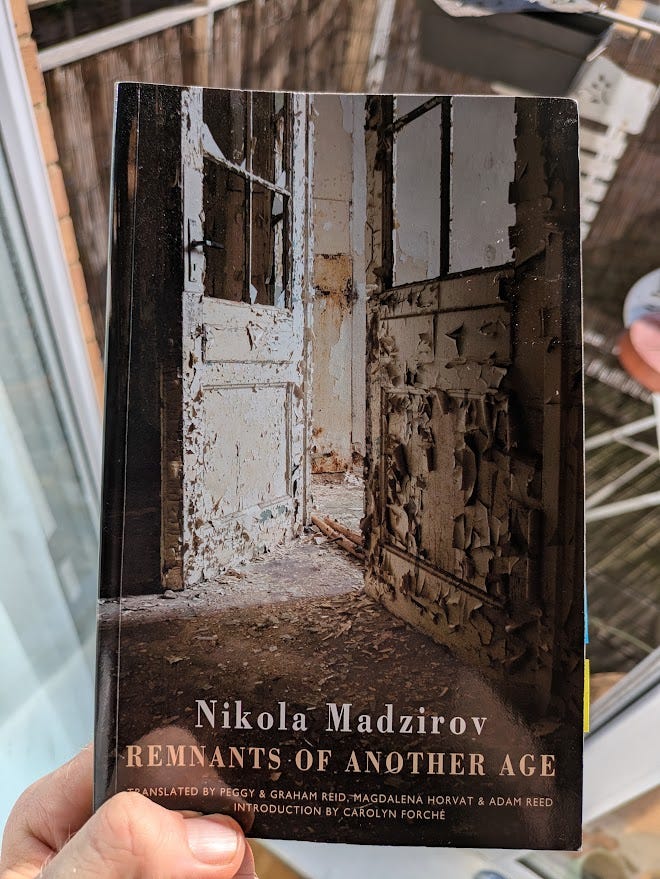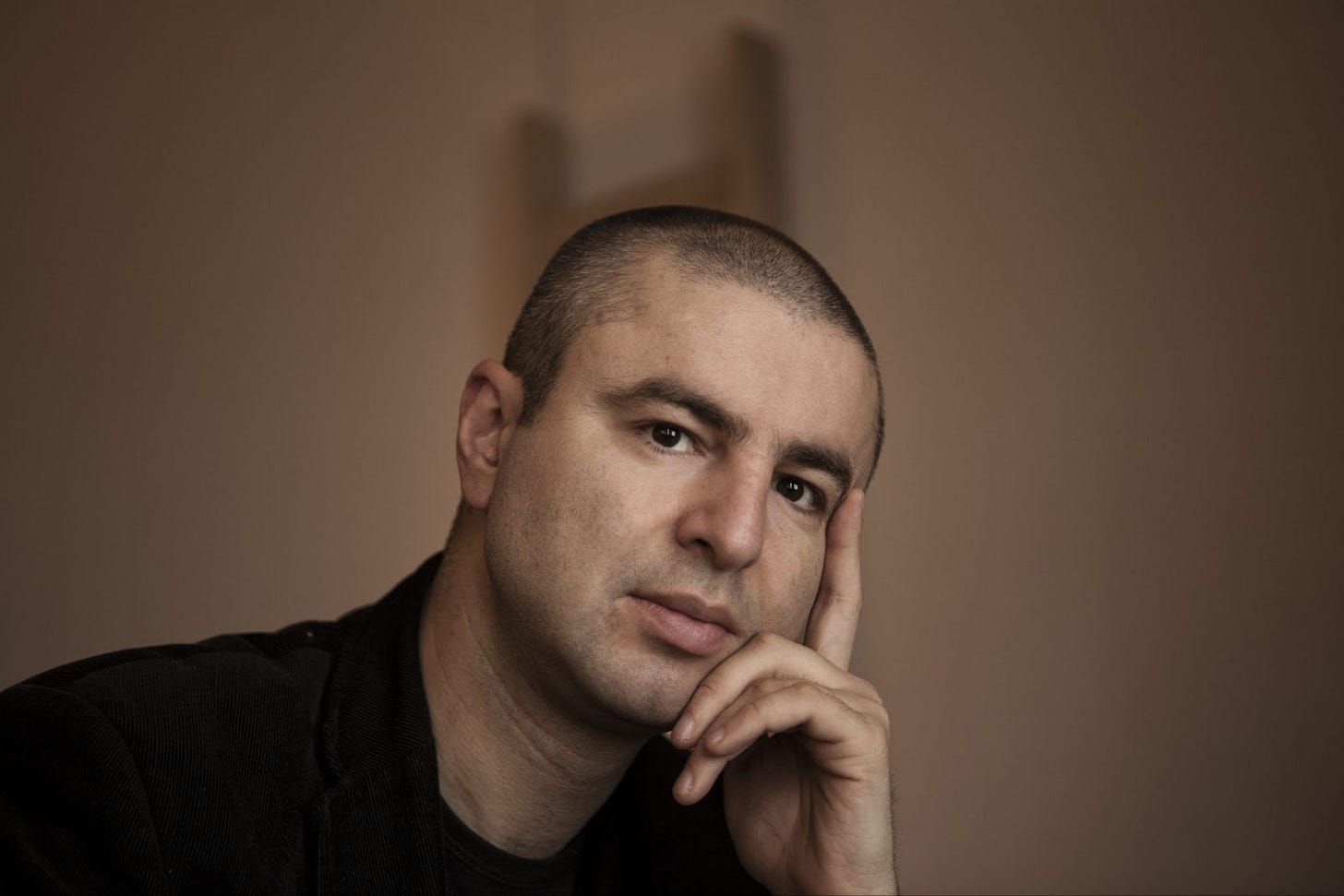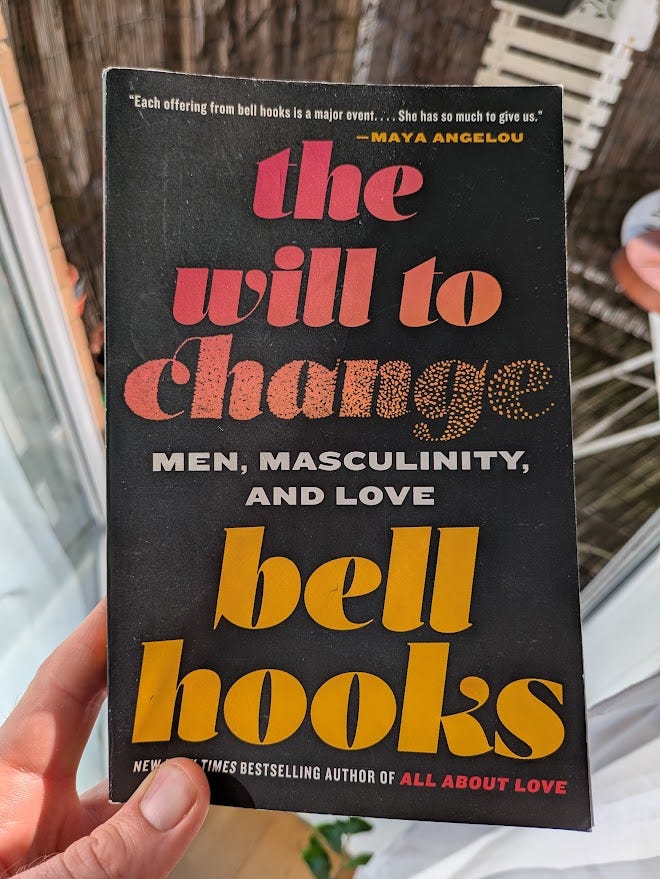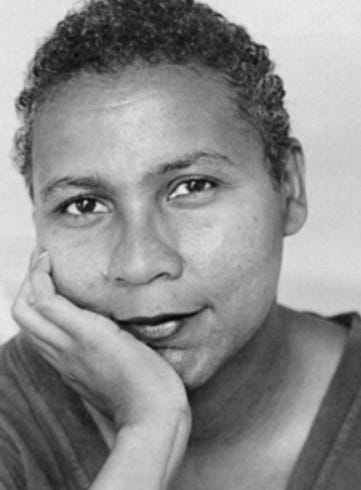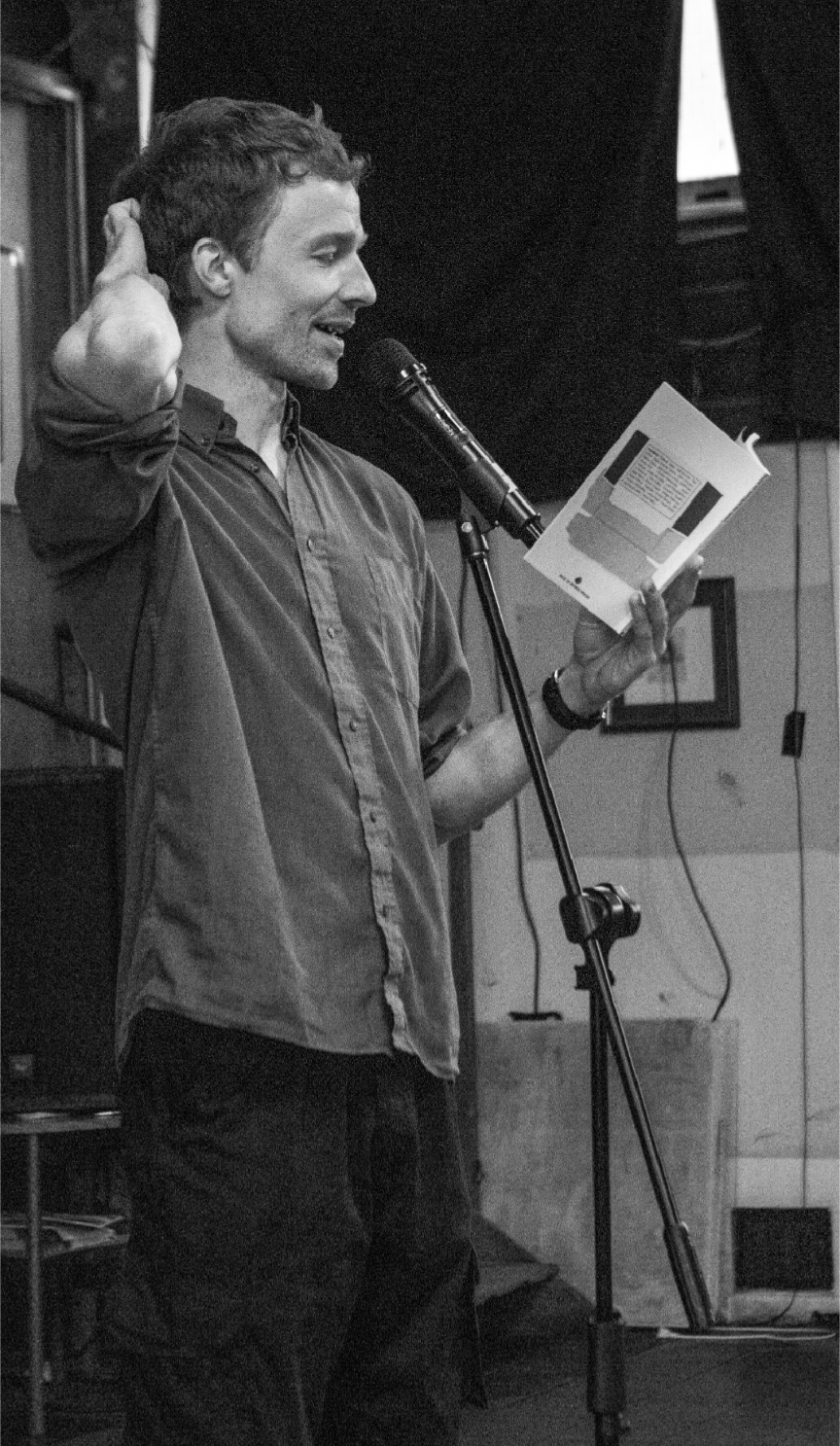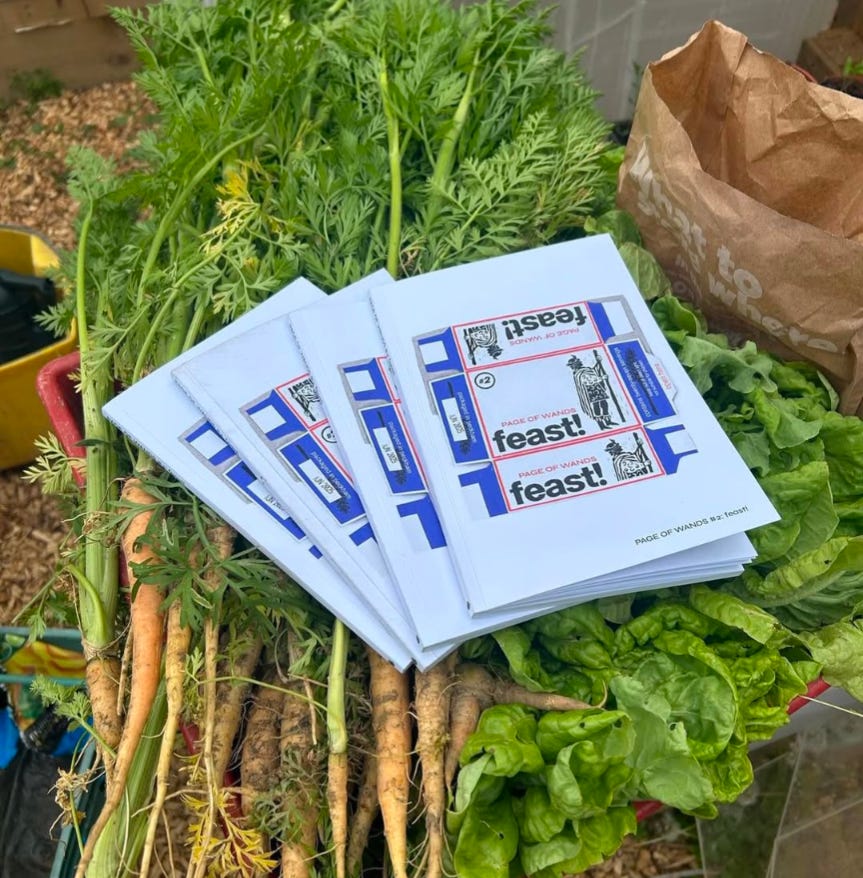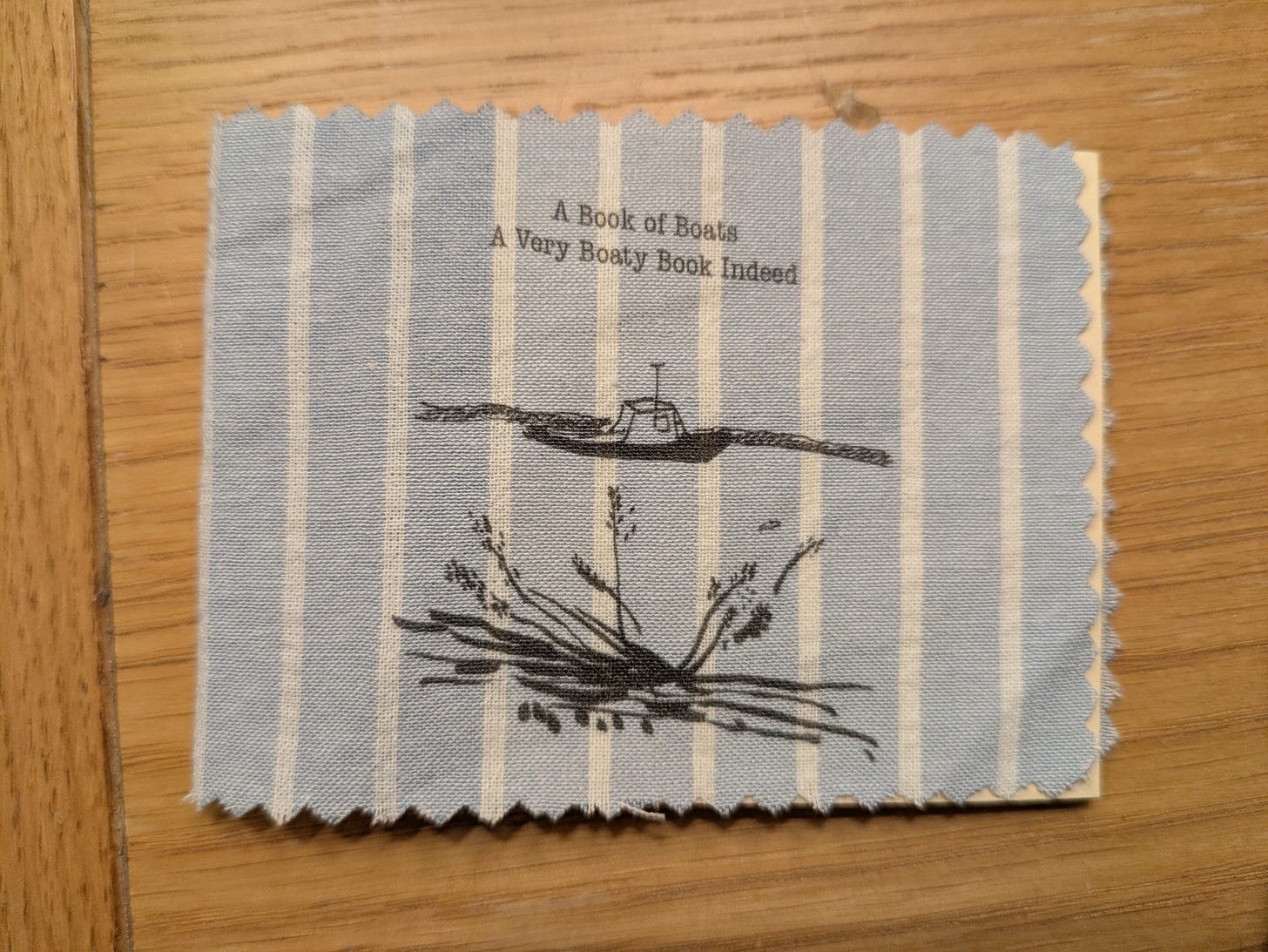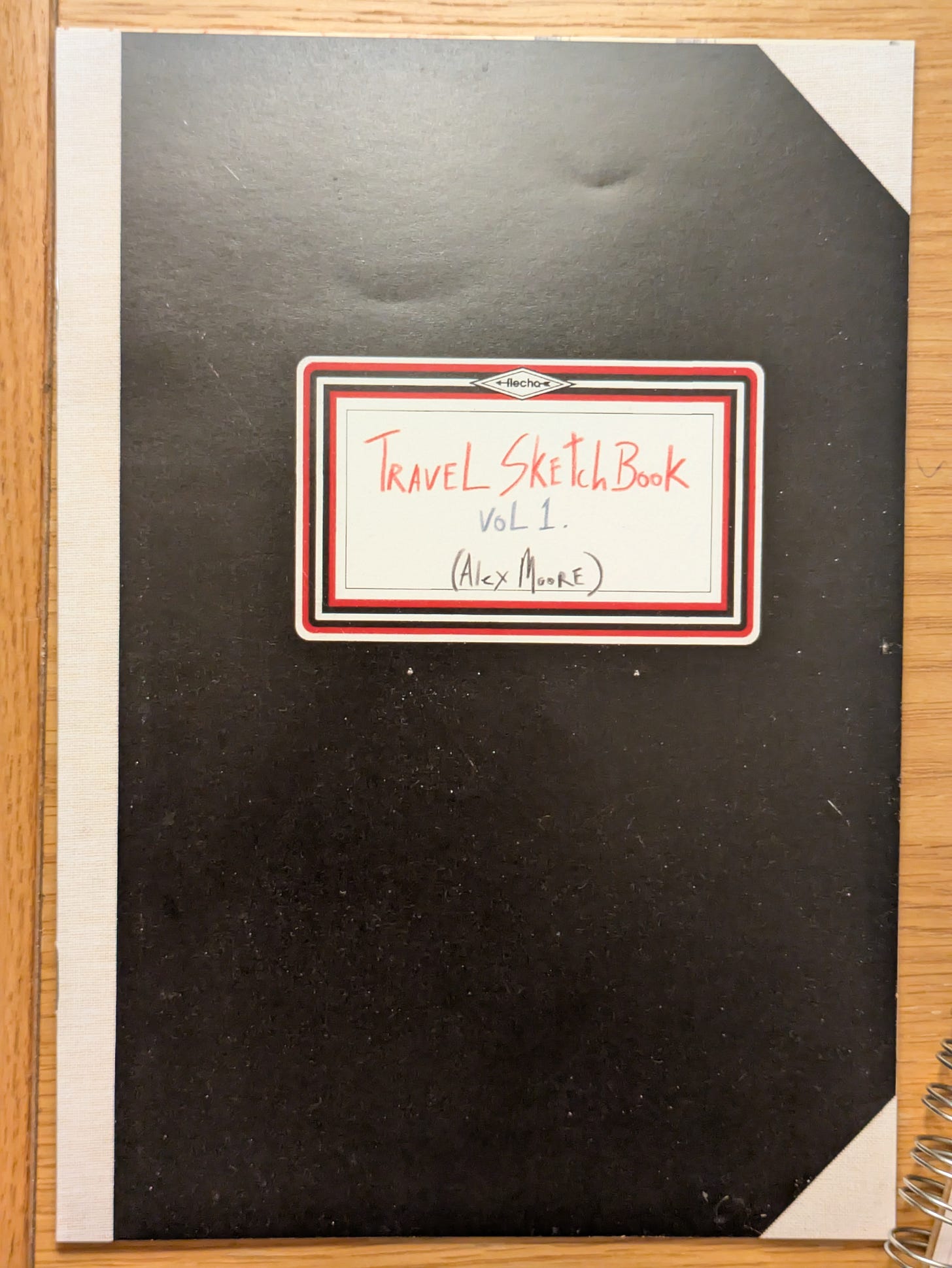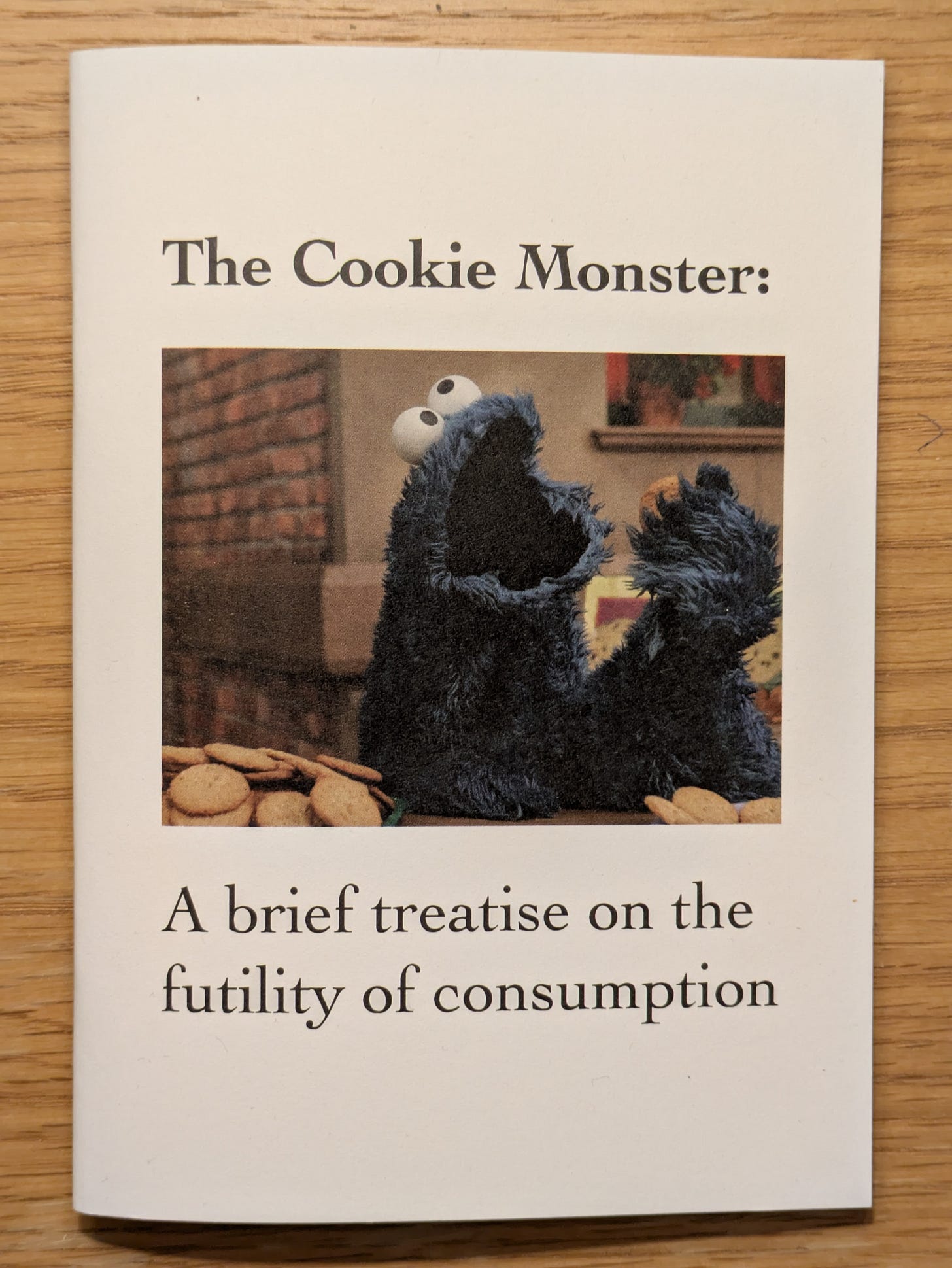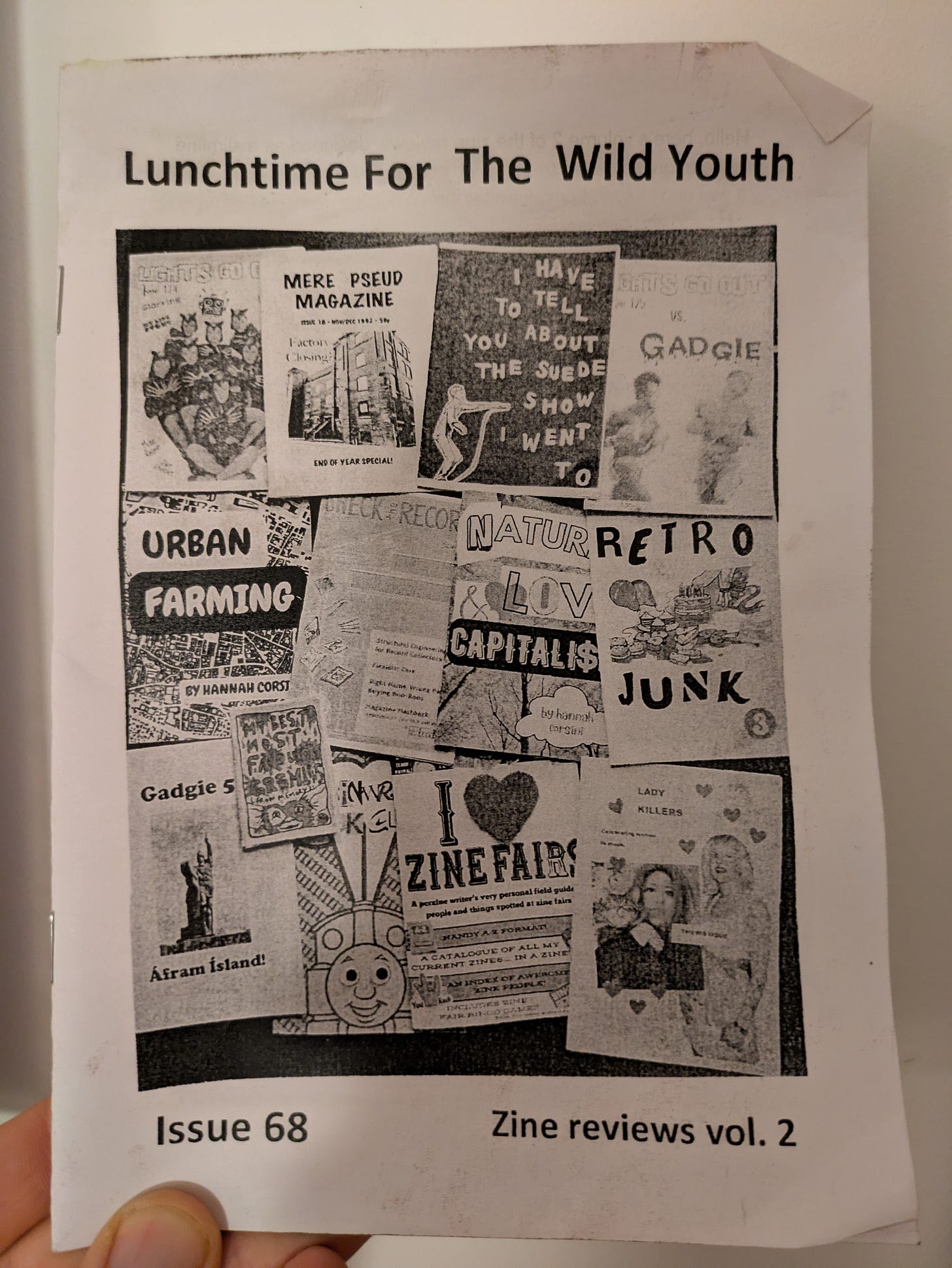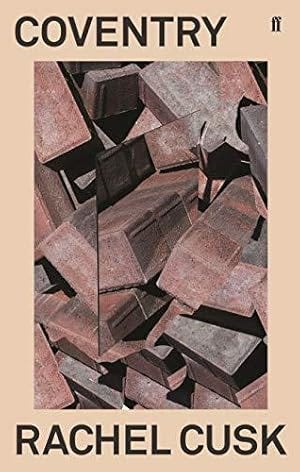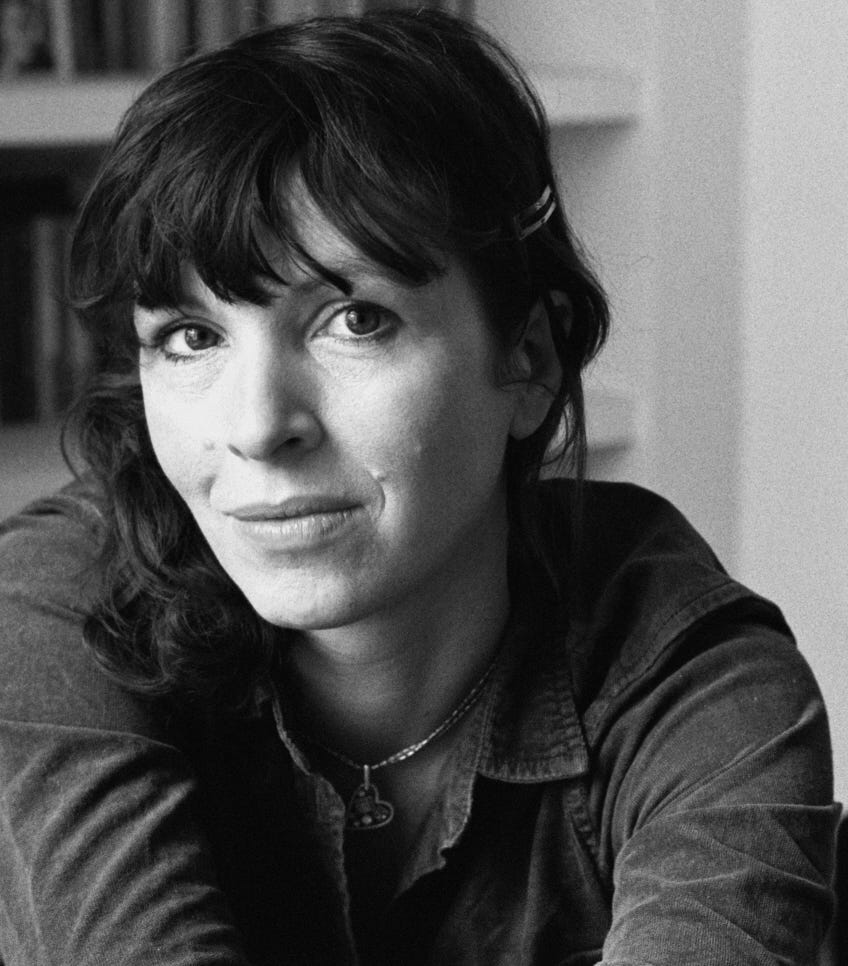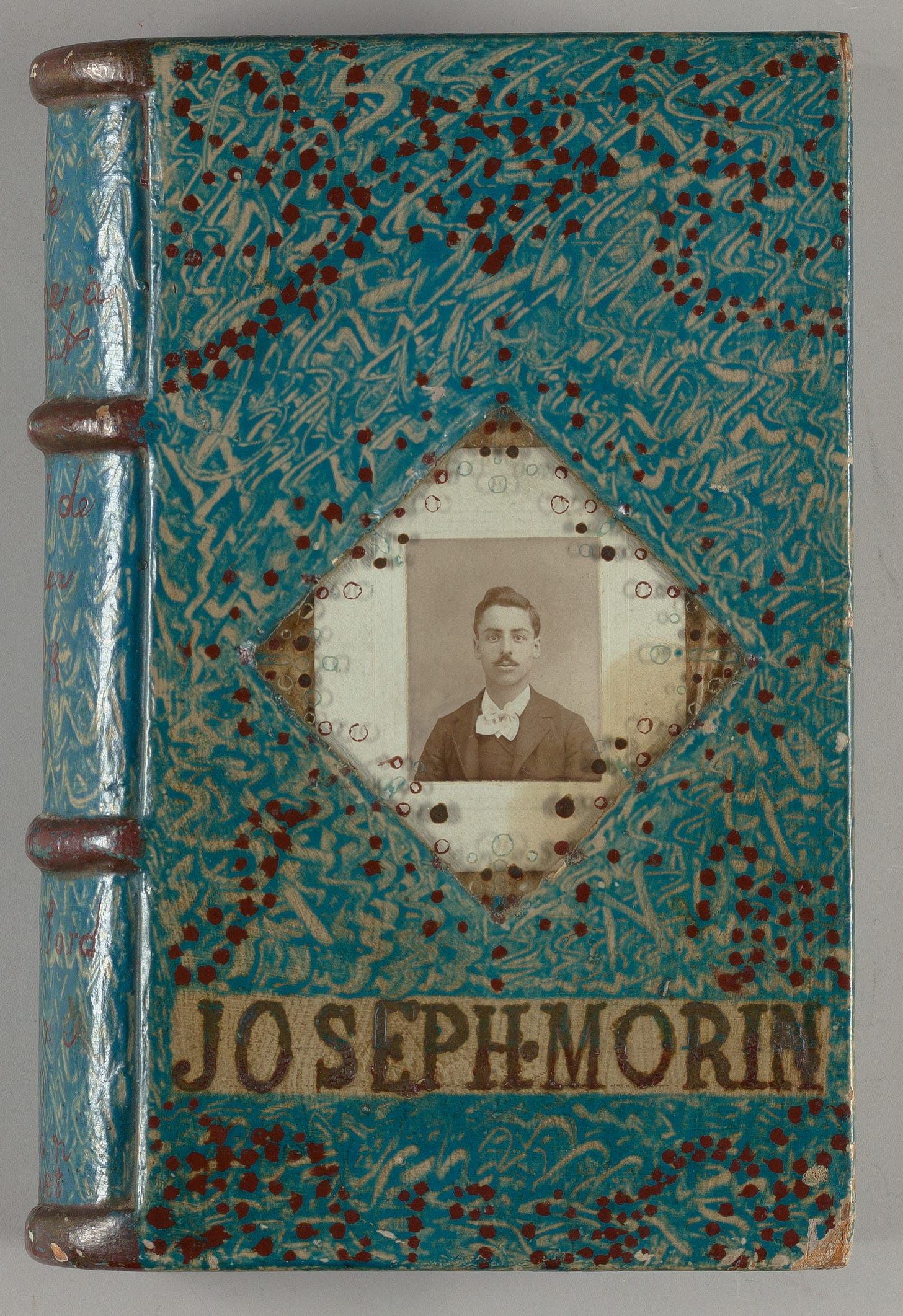June Reads and Other Excuses to Rearrange My Bookshelves
Everything I read in June—plus a few tangents on poetry, patriarchy, and personal shelving systems
Oleanders, Vincent van Gogh, 1888
Welcome back - and if this your first contact with Brain Stoker, a warm welcome! In this issue you will find:
Three book recommendations:
Novel
Poetry
Nonfiction
Zines, including one I was in!
Essay club despatch
Notes on organising a personal library
June Reads
Novel
Martyr! by Kaveh Akbar
(Picador, 2024)
“His whole life had been a steady procession of him passionately loving what other people merely liked, and struggling, mostly failing, to translate to anyone else how and why everything mattered so much.”
I picked up this book in maybe four bookshops before I took the plunge. There was a newly opened bookshop in my neighbourhood, and I wanted to support them. (Lala Books London)1
Martyr! made me think about many things. About the meaning of a life, about parental loss, about feeling like an outsider in your own land, about the purpose of art, about the experience of addiction, about myths, Persian and otherwise…
I liked it. It was surprisingly profound, especially in the final third. It nearly lost me in the first third, because I didn’t find the setup compelling at first, of an alienated addict. As the narrator says, all addicts are the same, more or less. When I bought it, I’d said to the bookseller that I’m glad that it didn’t promise to be a sad story, and they replied “it is sad, at least at the start.”
Akbar’s honesty about parental loss is searing and soul searching:
“Grace to live at all - none of us did anything to deserve it. Being born. We spend our lives trying to figure out how to pay back the debt of being. And to whom we might pay it.”
Structurally, the novel is interesting: there’s a rotating shift between perspectives, across distance and time – which duly earned the description “kaleidoscopic”. Modern day Idaho, the protagonist’s mother in 1970s Tehran, and more. And some meta-narrative: some extracts of the novel that the protagonist is writing, plus reports from US government officials. This makes it sound convoluted, but it is anything but. It's like a bag of sweets eaten while watching a slightly melancholic film.
It was strange to have some of the final third of the novel set around Brooklyn, New York, because I’m dating someone who lives there much of the time, and who was telling me about her favourite coffee shop, where she goes for walks. Along with Akbar’s time around a Brooklyn art gallery, in June it was like my mind was being projected there doubly, whilst my feet were very much in London. Does the term “psychogeography” extend to the experience of reading fiction?
The novel has flaws, but the emotional payoff is really worth it. Recommended. I look forward to seeing what Akbar does next.
“maybe you’ll find your real ending once you stop looking for it” …. “I think real endings tend to work their way in from the outside.”
Poetry
Remnants of Another Age by Nikola Madzirov
£12.99, Blood Axe Books, 2012
Macedonia is a small country but not lacking in writing talent. A recommendation to me, and one I'm glad I took up. Poetry publishing house Blood Axe books sent the copy from their headquarters in northern England (why don’t I know of more imprints from the North?) with a catalogue of their other books, which I circled a number in pen to look up another time. They are an imprint worth supporting and a class act all round.
This Macedonian poet’s writing is consistently beautiful. Once you settle into the idea of returning to a place you knew many years ago (hence the title, “Remnants of Another Age) and the strange mix of emotions this creates, you’re drawn in.
What we have said without witnesses
will long haunt us
The winters have piled up in us
without ever being mentioned
There are times where Madzirov’s writing is more hopeful:
Be alone, but not lonely,
so that the sky can embrace you,
so that you can embrace the lonely earth.
And,
to open the rusty door of the world
and depart with airy footsteps.
To recover from time’s dividers
thrust into our own hearts.
Reading three poems a day after breakfast became one of my daily rituals, and I came to look forward to it. This might sound like a strange tone start one's day with, laments of returning to an abandoned city. But it’s the way he tells ‘em.
Nonfiction
The Will to Change: Men, Masculinity and Love by bell hooks
Washington Square, 2004
Men’s mental health is a cause that matters to me, and one I'm glad to see rise up the public consciousness. Men are twice as likely as women to commit suicide.2 The recent Netflix drama Adolescence highlighted the need for toxic masculinity to be addressed earlier, in schools – before young men turn to influencers online.
The politics book club I’ve recently joined picked this title, which felt like a boon because I already owned a copy but hadn’t got round to reading it yet.
bell hooks (the lower case became her official published name) writes engagingly. The Will to Change has a mission, and my understanding is that it’s to help men to heal, and improve society as a result.
“The crisis facing men is not the crisis of masculinity, it is the crisis of patriarchal masculinity.”
She is not shy to take on feminists who only see men as part of the problem. hooks writes like an elderly therapist or campaigner who is tired of being nice about things. There is an emotional directness to her writing that means a reader can’t help but reflect on one’s own upbringing:
“Caring about men because of what they do for us is not the same as loving males for simply being”
“Patriarchy demands of men that they become and remain emotional cripples.”
The intensity of this – and, perhaps, the frequency with which it gave me pause for thought - meant I managed to get through about a third of the text.
The book club discussion was wide-ranging and thoughtful. Do women reinforce patriarchy?
“most folks continue to see men as the problem of patriarchy. This is simply not the case. Women can be as wedded to patriarchal thinking and action as men.”
Why do men struggle to express emotions other than anger? Does popular culture, such as superhero stories (there's a new Superman film out as I write this), reinforce this emotional one-dimensionality?
“Ultimately, movies send the message to male audiences that men will not be meaningfully empowered if they learn to love.”
Bringing things back down to ground, the group had a fruitful discussion about how men might learn to “call out” their friends who are acting out toxic masculinity. I mentioned that I remember seeing a campaign about catcalling, about not being a passive bystander, and saying words to the effect of “bro, not cool.”
I expressed my mixed feelings about the term “patriarchy”, which is a theoretical core concept of the book: would the term alienate a general public? The answer is probably yes, and so, those of us who have sympathy for hooks’ diagnosis would need to find new words to open up conversations.
That aside, this book gave me confidence to initiate awkward conversations. And for that, I’m grateful.
Zines, Zines, Zines
I have participated in a zine making club on and off for a couple of years. So to be in a legit zine that I submitted a poem to was wild!
The collection had a wonderfully wide range of writing from memoir to short fiction to poetry. I submitted a poem from my archives about a baguette - which fit the food theme as snugly as a long loaf in a paper shield (okay, stop with the poetic similes already).
How was the event? I was nervous, up near the beginning, and to my pleasant surprise, people really liked my reading! I tried to give it some colour and tonality, which I really miss doing since I stopped teaching children in primary schools.
You can purchase the zine Page of Wands 2: Feast at all good independent London bookshops. Or by post if you send them a nice email.3 The cover looks like a packet of something milky or maybe minty.
A few days later, I saw the lovely organisers of PoW at Brixton zine fair, and picked up this collection of treats (apologies for not having links to these talented artists!).
A Book of Boats: charming miniature drawings with a cloth cover. My inner child loved this.
Travel Sketchbook by Alex Moore: full of colourful pencil drawings, they have real verve and energy (tempted to share a picture from inside but without permission, I'd rather not!).
A funny political Sesame Street zine. It reminded me of John Oliver. Maybe I'll use more goofy characters as a way into big political questions on this Substack.
And finally, Lunchtime for Wild Youth, a brilliantly low-tech zine reviewing other zines. Which inspired this section! A tribute of love for DIY print culture.
Despatch from Essayists’ Enclave
Essay club4 last month discussed Rachel Cusk, and her essay collection “Coventry.”
Mostly famous as a novelist, whose covers have the same slightly brutal modern art style, I was yet to read her. The group had mixed feelings about Cusk’s writing style, but we saw the power of her observations in interpersonal relations:
“The truth often appears in the guise of a threat to the social code. It has this in common with rudeness. When people tell the truth, they can experience a feeling of release from pretence that is perhaps similar to the release of rudeness”
The title essay, about being frozen out by her parents, is worth seeking out.
Notes from Organising One's Library
Marriage spruce gum box in book form, Joseph Morin, February 27, 1903
To organise a personal library: will there ever be a good way to do it? You find a few orphaned tomes at home, but oh no! There's no place, no shelf space. Let's embark on a re-org, post haste. Before you know it, you're surrounded by piles, and it's two hours before order is restored.
March through May I had shelved nonfiction by genre, alphabetically: beginning with Anthropology, Art, Biography… and ending with Psychology, Reference, and Travel. But nestled in the middle of this was a half shelf of poetry, because I accessed it more often.
In late June I achieved a minor breakthrough, decisively separating fiction from nonfiction. It's not perfect, but I like it more.
A puzzle that remains unsolved is size: it’s no good shelving tiny books with huge tomes. So now I have an uneasy compromise: the smallest books and the biggest books are respectively combined. I dislike looking at the jumble they represent, but needs must.
Coming up
In the next reader roundup, likely in a month or so, you will find in Fiction: The Left Hand of Darkness by slow burn sci-fi sensation Ursula Le Guin, Nonfiction: The Politics of Design. Essays from David Foster Wallace.
But first! I'm starting a new series about “how to thrive in a big city”. Watch this space!
Until next time, thanks for stopping by, and hope to see you again.
https://www.lalabooks.london/
House of Commons Library, Suicide Statistics, p9 CBP-7749.pdf https://share.google/JGVNwN1SuYlcYonkr
https://pageofwands5.wordpress.com/
The New Essayists is a London peer writing feedback group


